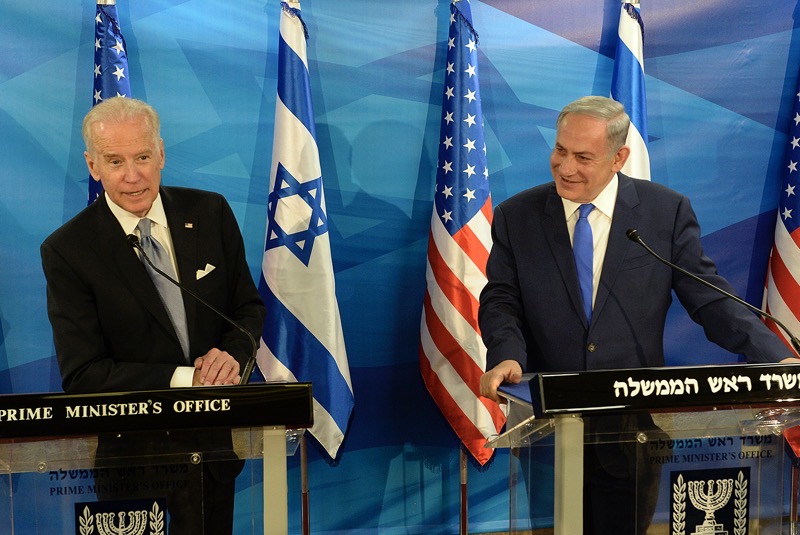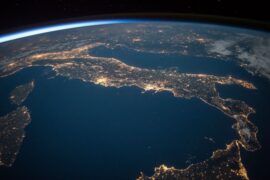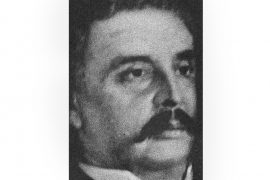Joe Biden’s most important legacy is Trump’s second coming and the Democratic Party’s worst defeat in recent times. Almost all political leaders have a strong weakness and an irresistible temptation to do their utmost to leave a legacy that will be remembered and admired by future generations. Did not Hitler speak of a 1,000-year Reich?
When Biden won the November 2019 election, most observers, including me, considered him the incoming president with the best experience in foreign policy. A senator since 1973, he focused on foreign affairs and joined the Senate Foreign Relations as a member in 1997 and chaired it from 2001 to 2003 and from 2007 to 2009. As Obama’s Vice President for eight years (2009-2017), Biden played an active role in foreign policy.
In retrospect, Biden has profoundly disappointed America and the rest of the world by going back on his word, and, even more so, by resorting to a toxic variation of ‘public diplomacy’. Let me illustrate my case with a few examples.
Iran Nuclear Deal
JCPOA (Joint Common Plan of Action) was President Obama’s legacy, which candidate Trump had declared he would dismantle. The deal was working, and the IAEA (International Atomic Energy Agency) inspected and ensured that no fissile material was diverted to make an atomic bomb. Trump arbitrarily walked out and re-imposed sanctions on Iran in 2018.
As a candidate, Biden had repeatedly promised to reverse Trump’s decision. Shockingly, Anthony Blinken, Biden’s nominee as Secretary of State, reversed Biden’s policy on JCPOA by telling the Senate during the ratification hearings he would follow the same policy as Trump’s without using his name. Given the correlation of forces in the Senate, Blinken had to do that to get his appointment ratified. Biden did not explain why he changed his mind. Consequently, Iran gravitated towards China and Russia.
Policy Towards China
The first foreign minister-level interface between China and the Biden presidency in Anchorage, Alaska, in March 2021 was a study in toxic public diplomacy.
As reported by Reuters, the U.S. and Chinese officials engaged in rare sparring in public. The U.S. said China threatens rule-based order and global stability. China said the U.S. abuses national security.
It is customary for the leaders of the two delegations to shake hands and say a few words about the importance of the meeting with the media present before the formal talks begin. Normally, this public part is over in minutes. However, Blinken started by chiding China in public, and China responded in kind. The public clash lasted an hour.
Yet another instance of deviation from classical diplomacy occurred in February 2023, when Blinken cancelled his visit to China after a ‘spy balloon’ sent by China was spotted in the US sky. When Washington announced the trip was ‘cancelled,’ the Chinese spokesperson testily stated that neither side had announced any trip.
Blinken went to China four months later, and Washington sent several high-level officials to Beijing without waiting for any return visits. This is one more deviation from classical diplomacy.
Biden publicly called Xi Jinping an “autocrat” in June 2023. Chinese foreign ministry spokesperson Mao Ning called the remarks “extremely absurd” and “irresponsible” and said they seriously violated facts, diplomatic protocol and China’s political dignity
Biden invited Xi Jinping to a summit in San Francisco in November 2023. Immediately after the summit, he again called his guest a “dictator.” Once again, Mao Ning told the media that Biden’s statement was “extremely wrong and irresponsible.”
The net impact of Biden’s incorrigible, absurd diplomacy has been that the China-Russian nexus has strengthened.
Policy Towards Russia
Again, Biden’s toxic version of public diplomacy had a baleful impact. In March 2021, in response to a question, Biden called Putin “a killer.” Russia recalled its ambassador from Washington, and the U.S. Ambassador in Moscow returned to Washington.
Biden had second thoughts, and he sought a summit with Putin. The two met in Geneva three months later. We do not know what Biden told Putin, but the latter said he was satisfied.
The most severe error on Biden’s part was to treat Putin in a way that left him hardly any choice but to invade Ukraine.
As President Zelensky asked for NATO membership, Biden could have recalled how President Kennedy dealt with the Soviet Union when it put missiles in Cuba in 1962. Putin was being put in a similar situation.
Putin tried classical diplomacy by seeking a treaty to address Russia’s security concerns and sent a draft treaty to Washington in December 2021. Biden publicly declared that Ukraine had every right to seek NATO membership and that NATO was keeping an “open door policy.”
What is shocking is that Biden knew that NATO would not be able to admit Ukraine. Yet he encouraged Zelensky to believe that it was imminent.
Biden had miscalculated that the Russian economy would crumble under sanctions, Putin might be dislodged from power, and Russia might even disintegrate.
In November 2021, Ukraine and U S signed a Charter on Strategic Partnership that emphasised “unwavering commitment to Ukraine’s sovereignty, independence, and territorial integrity within its internationally recognised borders, including Crimea and extending to its territorial waters in the face of ongoing Russian aggression, which threatens regional peace and stability and undermines the global rules-based order.”
Is there any earthly chance of liberating Crimea without a big war with Russia?
Biden Promoted Russia-China Nexus
The two top economic powers are the U.S. and China. The top three military powers are the U.S., Russia, and China. Imagine a triangle whose sides are these three. This is a case where geopolitics follows geometry: Any two sides of a triangle are longer than the third side.
Historically, after the collapse of the Soviet Union, Russia and China got closer. Biden has immeasurably strengthened their alliance. We see now the China-Russia axis getting even stronger with Iran and North Korea joining it.
Biden & Israel
In his autobiography, Promises to Keep: On Life and Politics, published in 2008, Biden recalls his father telling him at the dinner table about the historic struggle of the Zionists to establish Israel. He does not refer to his father’s telling him of the Palestinians who were forcibly exiled from their homes by Zionists before Israel was established and after that.
Immediately after Hamas and other militants attacked Israel on 7 October 2023, Biden proclaimed his “iron-clad” support for Israel. For months, he kept his eyes closed as Israel carried out a genocidal war.
By May 2024, after over 36,000 deaths, he opened his eyes and exerted himself to get the UN Security Council to pass a resolution for a ceasefire in Gaza. Biden claimed that the resolution was based on an Israeli draft and that it was for Hamas to accept it.
Netanyahu easily outwitted Biden by delaying negotiations and carrying on with the genocidal war. Ultimately, Netanyahu ensured that the talks mediated by the U.S., Qatar, and Egypt proved sterile.
Meanwhile, Biden went on announcing from time to time that a ceasefire was imminent. He dared not stop or delay the shipment of arms to Israel except for once, and that too only for a short while. Essentially, in sharp contrast to Raegan, who, in a brief conversation over the phone, compelled Prime Minister Menachem Begin to stop bombing Beirut in 1982, Biden is incapable of using his presidential powers to stop a war.
Does not Biden deserve the title” Genocide Joe”?
Biden claimed that as President he had done more for Israel than any of his predecessors. Ironically enough Netanyahu openly worked hard to support Trump. Biden’s only foreign policy victory is the fragile ceasefire in Beirut.
Why did Biden fail to deliver? Is it not the case of a combination of moral cowardice, naïve assumptions, and woeful lack of self-confidence? We shall know once the archives are opened, and historians apply their minds.
As Friedrich Schiller (1759-1805) said, world history is the world’s court of judgment. Meanwhile, we may recall the Roman poet Ovid, a contemporary of Jesus Christ, who wrote in his Metamorphoses:
Video Meliora, proboque, Deteriora sequor
(I see better things and approve
I follow the worse.)
-30-
Copyright©Madras Courier, All Rights Reserved. You may share using our article tools. Please don't cut articles from madrascourier.com and redistribute by email, post to the web, mobile phone or social media.Please send in your feed back and comments to [email protected]











